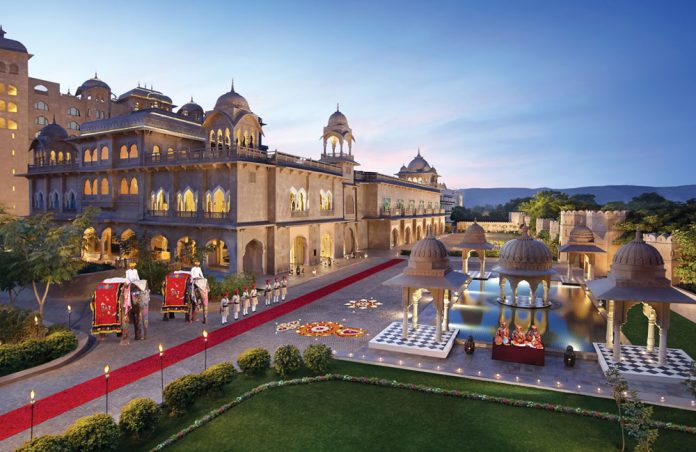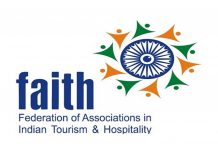Industry experts share their views with Charmaine Fernz on the how the pandemic has changed the M!CE business & what lies ahead
According to Global Opportunity Analysis and Industry Forecast, the global M!CE industry was pegged at US$805 billion in 2017, and is projected to reach US$1,439.3 billion in 2025, registering a CAGR of 7.6 per cent from 2018 to 2025.
Going by earlier statistics, the year 2020 began on a very optimistic note, least to everyone’s dismay a total washout. As Jyoti Mayal, President of TAAI and Vice Chairperson of FAITH, says, “The Indian M!CE market was worth as much as US$2 billion, with growth marked at eight per cent per annum. The potential for growth was huge, even though many Indian business houses prefer foreign locales. The Indian wedding industry, part of M!CE, is the second-largest in the world with a total value estimated at US$50 billion. More than 10 million weddings take place in India each year; the value of the sector could well be over INR 100,000 crore, with growth rates topping 30 per cent.”
These were substantial numbers which were completely wiped away in the last eight months. Robust growth plans came to a standstill when India like the whole world was engulfed in the pandemic. Amit Saroj, Chief Creative Officer and CEO, Indiattitude puts the situation in perspective. “The pandemic has had a major impact making most companies rethink their business models for survival. It has not been easy to survive the impact of negligible revenue and unfortunately, some players had to shut shop. In my view, revenue loss guesstimate is about 95 per cent over the last six months including support services,”
he adds.
Bustling events came to a standstill with technology being the only saviour. Industries had to abide by new norms such as social distancing, sanitisation, hygiene factors and a very prevalent fear psychosis. As Guldeep Sahni, MD, Weldon Tours & Travels, says, “The industry witnessed training and development, launch of products, or even knowledge upgradation happening to a large extent on Zoom and tech platforms. This may have been a boon to the technology industry but pertaining to the tourism industry, it was restricted to only training and developing its stakeholders.”
THINKING OUT OF THE BOX
The lockdown though preventive had its impact on every individual and industry. The concepts of sanitation, social distancing and wearing a mask were ingrained in every individual psyche. However, looking at this adversity in an optimistic light, Rohit Chopra, Regional Director – Sales & Distribution, India & South Asia, Accor, says, “The hospitality industry is operating in a ‘new now’. Social distancing is the norm with an increased emphasis on health and safety, resulting in contactless services as the foundation for operations. For M!CE this translates into virtual events and weddings as the way forward, ensuring maximum social distancing is maintained and no buffets or minimal buffet set-ups are
in effect.”
Elaborating further Mayal adds, “An industry cannot take-off where engagements and physical meetings of people are at the heart. But, as we embrace the new normal, it would be prudent to find practices that can work within given guidelines; rather than endlessly waiting for times to get better. M!CE travellers will attach greater importance to hygiene and lead time for event organisation will be shortened.
The first stage of recovery will witness smaller M!CE groups constitute a larger ratio in the industry due operational constraints. The ‘phygital’ hybrid model will become a rising trend in M!CE events, integrating digital and physical interfaces. Convention and exhibition venue providers will have to put in place additional disinfecting equipment and have heightened screening arrangements to ensure public health safety.”
From an airline perspective, Sanjay Kumar, Chief Strategy and Revenue Officer, IndiGo explains it will be no different. “The M!CE industry will witness various shifts, while some changes may be temporary, there will also be some permanent new variations in business models. The fear of the virus has already brought in a lot of digital innovations which will continue to grow in times to come. Incentive travel will be largely domestic in nature, keeping safety and restrictions in mind. As an airline, we are enhancing our domestic network as well as offering charter options to cater to all such needs.”
THE INDUSTRY VOICE
Every industry has faced the brunt of the pandemic with tourism suffering a major bolt. As we access how is the industry emerging towards normalcy, we understand how some verticals are coping with the change.
Explaining the impact on the airline industry, Kumar says, “As we all know, the airline industry as a whole had a huge impact, leave apart any specific segments. Of course, all M!CE movements were cancelled and are still going to take some time before we start seeing large M!CE groups coming back. On our part, we have worked very closely with various stakeholders and government authorities in order to follow standard protocols post-resumption of flights. All new protocols are aimed at bringing back trust and confidence among our customers. In addition, we have also reached out to our existing customer base and corporates, providing them with surety as to why it’s safer to travel via air. Subsequently, we are slowly seeing confidence coming back as more and more customers are flying every day.”
Sharing his views from a hospitality perspective, Chopra says, “Undoubtedly, every industry has been impacted by the pandemic. However, weddings have been resilient, with continuous demand. At several of Accor’s hotels, we witnessed a rise in demand for curated & virtual weddings. We are also expecting an increase in bookings of small meeting rooms. We have undertaken multiple initiatives to bring back M!CE segment patrons.
We have implemented our cleanliness and prevention label, ALLSAFE at all our properties. In addition, across our properties, we have altered our meeting room capacity and re-arranged furniture to ensure minimum one metre distance between each participant to be compliant with govt norms.Our hotels have also organised a circulation path (one-way traffic) to access and exit the meeting rooms. We have also initiated the ‘Welcome Back Program’ where we partner with airlines to reignite trust in guests by inviting them to showcase all safety measures adopted by the hotels
across brands.”
Sharing her views from an industry association’s point of view, Mayal adds, “The M!CE industry entails many aspects of stakeholders. Every stakeholder is being educated on the new norms. We have been continuously in dialogue with various ministries for not just supporting the entire industry monetarily by offering reliefs and rebates but also pushed the government to open businesses, hotels, convention centres, even if it is with limited presence. Only if the country opens will the confidence and demand be generated. Most importantly, FAITH and TAAI have suggested lower taxes to lure more M!CE in India and for ease of business. Vocal for Local should certainly be our motto.”
GOING BEYOND THE NORMAL
As the adage goes ‘Change is the only constant’, this is true for the tourism industry in India, including M!CE. Little did one expect that the turn of a new decade would shake things up so drastically. However, looking ahead with optimism, Sahni says, “There will be demand for smaller group events. Travel for M!CE events will now be restricted to short-haul travel both within India and internationally. In my view, revival will only happen by the end of 2021 or beginning of 2022.”
Sharing a slightly different point of view, Saroj says, “We are already in the recovery phase and by April 2021, we should be expecting a growth phase. This is simply because more in-person events will be possible and backlog will create a growth opportunity.
Another factor to watch out will be customer behaviour, as the shift from in-person to virtual was easy, but getting back to in-person, with cost advantages for virtual may be challenging.” Chopra explains, “Trust is the new currency but the key factor in 2021 will remain hygiene & safety assurance with contactless experiences in conducting events. We have seen green shoots in a few industries such as pharmaceuticals, electronics, automobile, sports, movie production houses and social events and can expect them to drive M!CE demand in 2021.”
“The new India (post COVID era) will be a more responsible tourism destination. The emerging M!CE tourism trends include one that promotes sustainability in travel, tourism and M!CE. One that works for promoting local communities and builds engagement,”concludes Mayal.















